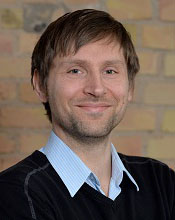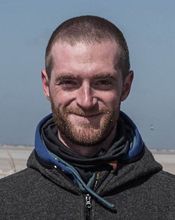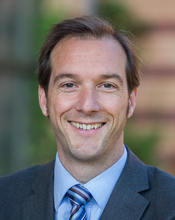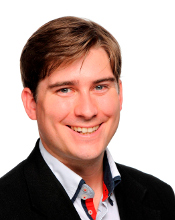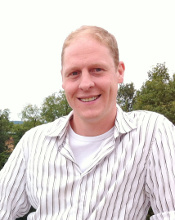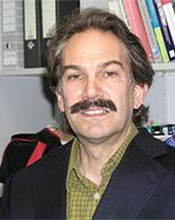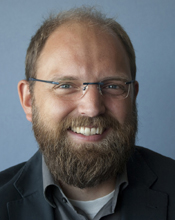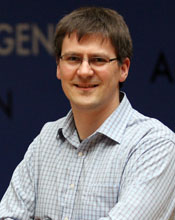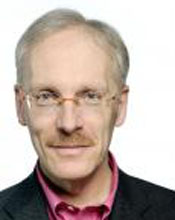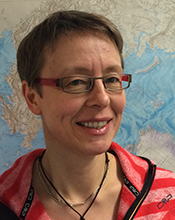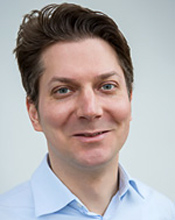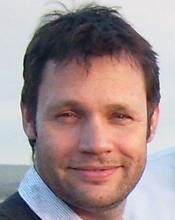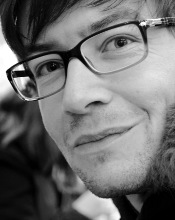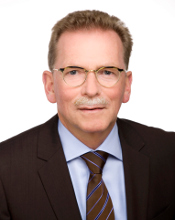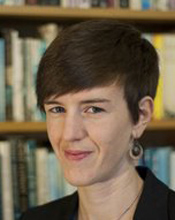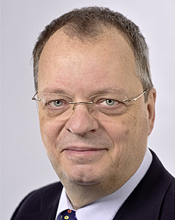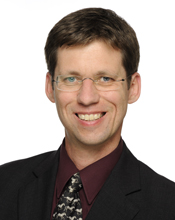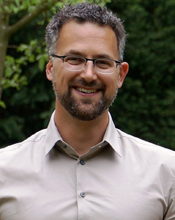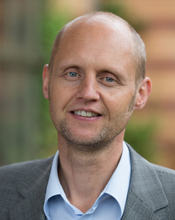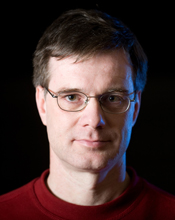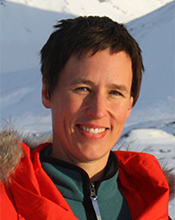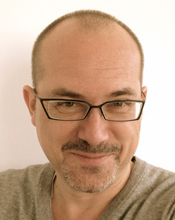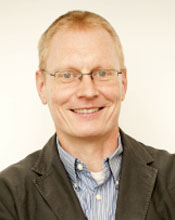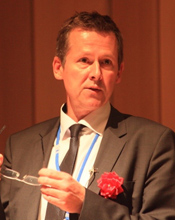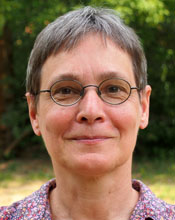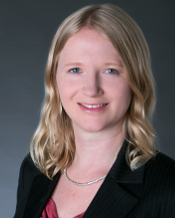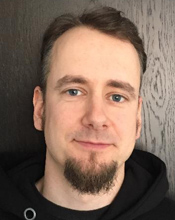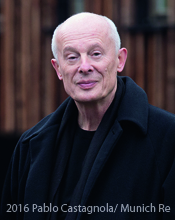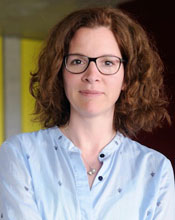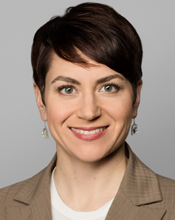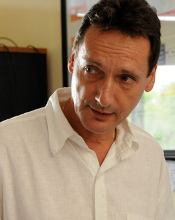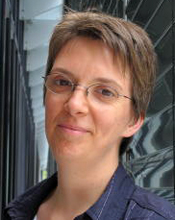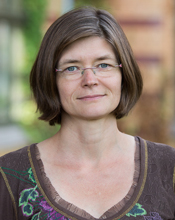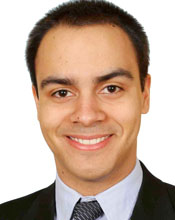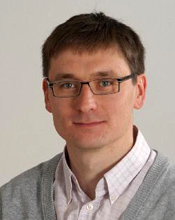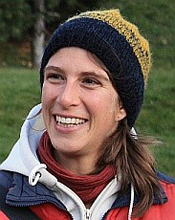Speakers 2016
Speakers 2016
We will present the list of speakers with a short bio in alphabetical order to give you an overview about their individual field of professional expertise.
Peter Agoston
is Postdoc at the Mercator Institute on Global Commons and Climate Change (MCC Berlin) in the working group Land Use, Infrastructure and Transport. He holds a Ph.D in engineering (material science) from the TU Darmstadt where he has conducted research on materials important for energy production and energy efficiency. He joined the R&D of Bosch Solar to work on CIGS thin film photovoltaic (PV) modules for utility scale/rooftop as well as for integration in buildings.
Besides PV and energy systems, his current research at MCC Berlin focusses on climate change mitigation in the urban context. He is especially concerned with the timescales of urban transformation and the influence of past, present and future urban infrastructure and transportation systems on the long term development of cities.
Ihtiyor Bobojonov
received his PhD in agricultural economics at the University of Bonn (Germany), in 2008. His PhD thesis focused on modeling crop and water allocation under uncertainty in irrigated agriculture in Uzbekistan and was honored with the prize for the best Doctoral Thesis 2007/2008 at the Center for Development Research (ZEF). Since 2012, Dr. Ihtiyor Bobojonov is a researcher at the Leibniz Institute of Agricultural Development in Transition Economies (IAMO). He works in projects related to the mobilization of agricultural market potentials in the CIS countries and studies the impact of supply chain transformation on the welfare of agricultural producers. Furthermore, he investigates the role of insurance in agricultural sector development, and analyzes possible options to improve the performance of insurance markets.
Niklas Boers
studied Physics and Mathematics at LMU Munich, and obtained his PhD in Physics from HU Berlin. During his PhD, he developed methods based on graph theory to study spatial patterns of extreme event synchronizations and teleconnections with applications to rainfall data. In particular, he works on statistically rigorous definitions of teleconnections, and methods to remove spurious artifacts from the underlying similarity analyses. His current research at the École Normale Supérieure in Paris focusses on paleoclimatic records, dating uncertainties, and stochastic differential equations as empirical models of time series derived from such records.
Ingo Braeuer
is Head of Science Coordination at PIK. Before coming to the PIK, Ingo Bräuer worked as a Senior Fellow at Ecologic-Institute with a research focus on environmental economics, the implementation of the EU Water Framework Directive and market based instruments for biodiversity conservation. Further places of work were the Department of Economics at the Centre for Environmental Research (UFZ) in Leipzig, Germany and a post-doctoral position at the Centre for Sustainable Development (IZNE) at the University of Goettingen within the Graduiertenkolleg “Valuation and Preservation of Biodiversity”.
Ingo Braeuer studied Biology and holds a PhD in Environmental and Resource Economics.
Thomas Bruhn
is a physicist working as a researcher at the Institute for Advanced Sustainability Studies (IASS) in Potsdam. He engages in transdisciplinary exchange on the topic of climate engineering and is particularly interested in the relationship between humans and nature in the Anthropocene. He is doing research on the environmental impacts of CO2 capture technologies particularly in the context of utilizing CO2 as a resource.
Before joining the IASS he conducted research on semiconductor nanomaterials and molecular self-assembly in Berlin, Rome und Marseille. He regularly acts as a trainer in adult education programs and as facilitator of group processes. He is a member to the Think Tank 30 of the Club Of Rome and serves in the board of directors of the Global Contract Foundation.
Dim Coumou
is a senior scientist at the department of Earth System Analysis of the Postdam Institute for Climate Impact Research (PIK, Germany). He received a Ph.D. in Natural Sciences from ETH Zurich for his work on the development of efficient multiphase fluid flow transport schemes applied to hydrothermal system. In 2008 he joined PIK where he developed a radically new atmosphere model, Aeolus, which is part of the Potsdam Earth System Model (POEM). His research focusses on extreme weather events associated with atmospheric circulation and climate change. He obtained research grants from the German Research Foundation, the German Federal Ministry of Education and Research, Climate-KIC (EU) and the Volkswagen Foundation. Since early 2014 he is leading a junior research group which studies the link between jetstream dynamics, extreme weather and their underlying tropical and/or arctic drivers.
Bernhard Diekmann
is head of the Research Unit Potsdam at the Alfred Wegener Institute Helmholtz Centre for Polar and Marine Research (AWI) and adjunct Professor for Quaternary Geology at Potsdam University, Institute of Earth and Environmental Science. He has a long-lasting expertise on geological and climate research in cold regions. Another important task is to foster outreach activities to public audience. Latest international projects in Siberia, Kamchatka, the Tibetan Plateau, and the Antarctic Ocean dealt with environmental changes since the last ice age, providing important knowledge for a better understanding of future global change.
Harald Fuhr
is Professor of International Politics at the Faculty of Economics and Social Sciences at the University of Potsdam since 1997. He has carried out research projects on international climate change policies and carbon governance, on public sector reforms, decentralization and local governance in developing countries.
From 2006-2009, he coordinated a research cluster of the SFB 700 “Governance in Areas of Limited Statehood” and directed a research project on the Clean Development Mechanism. His teaching covers global governance, development politics, international political economy and theories of international relations. Since some of his research has considerable policy traction, he has also been advising the Deutsche Gesellschaft für Internationale Zusammenarbeit (GIZ), the Federal Ministry for Economic Cooperation and Development (BMZ), the European Union, the World Bank and the United Nations Development Program.
Prior to joining the University of Potsdam, Harald Fuhr worked as Sr. Public Sector Management Specialist in the Latin America and Caribbean Department of the World Bank in Washington, D.C., USA (1993-1997) and was principal author of the World Bank’s World Development Report on the “State in a Changing World”.
Matthias Garschagen
is Head of Vulnerability Assessment, Risk Management and Adaptive Planning (VARMAP) at United Nations University – Institute for Environment and Human Security (UNU-EHS) in Bonn, Germany. His research focuses on urban vulnerability and social resilience in the context of natural hazard and climate change impacts, particularly in South and Southeast Asia. He is especially concerned with the governance of urban adaptation efforts in dynamically transforming countries and with the question of how shifts in vulnerability can be assessed in a forward-looking manner using novel scenario techniques. Matthias Garschagen has a leading role in multiple international research projects and has served as a contributing author to the IPCC’s Fifth Assessment Report. He holds multiple teaching appointments, including at the Universities of Cologne, Bonn and Maastricht. His more recent publications include the book “Risky Change?” (Steiner publishing house) as well as work on the concept of adaptive urban governance (in Urban Climate) and the relationship between global urbanization and climate change vulnerability patterns (in Climatic Change). He holds a PhD in Geography from the University of Cologne, Germany, and further has a background in Economics and Cultural Anthropology.
Guido Grosse
received a Diploma in Geology from the TU Freiberg and a Dr. rer. nat. in Geology from the University of Potsdam / AWI Helmholtz Centre for Polar and Marine Research in 2001 and 2005, respectively. He was an IPY Postdoctoral Fellow at the Geophysical Institute, University of Alaska Fairbanks, from 2006–09, and in 2009 became a Research Assistant Professor there. Since 2013 he leads the European Research Council (ERC) Starting Grant project PETA-CARB (Rapid Permafrost Thaw in a Warming Arctic and Impacts on the Soil Organic Carbon Pool) at AWI Potsdam. In 2016 he was appointed jointly between AWI and University of Potsdam as W3-Professor for “Permafrost in the Earth System”. His research focuses on the study of climate change impacts in Arctic permafrost environments by using remote sensing, spatial information systems, and extensive field work. He participated in more than 35 field campaigns in Arctic and Subarctic Siberia and Alaska and has authored or co-authored more than 70 peer-reviewed journal articles.
Armin Haas
is co-leader of the Economics & Culture program at the Institute for Advanced Sustainability Studies, Potsdam (IASS), and leads the research line Integrated Risk Governance of the Global Climate Forum (GCF). He is member of the scientific steering committee of the Integrated Risk Governance Project, and co-founder and member of the board of the Munich Climate Insurance Initiative (MCII). Armin Haas holds a PhD in Economics from the University of Karlsruhe, Germany.
Doerthe Handorf
is a senior scientist at the Research Unit Potsdam at the Alfred Wegener Institute Helmholtz Centre for Polar and Marine Research (AWI). She studied meteorology and received her Ph.D. in Atmospheric Physics from the Humboldt University in Berlin for studies on stable atmospheric boundary layers. Since then, she gained much experience in studying mechanisms of decadal climate variability and predictability by means of a hierarchy of simplified and complex climate models. During the last years her research focuses on the linkages between Arctic climate changes and weather and climate changes in the northern mid-latitudes with emphasis on the underlying dynamical mechanisms in the atmosphere.
Thorsten Heimann
is postdoc at Leibniz Institute for Society and Space (IRS). He studied cultural sciences and wrote his PhD in Sociology at Freie Universität Berlin titled “Climate Cultures and Space. Cultural Differences in Handling Climate Change at European Coastal Areas”. He has been working for the Potsdam Research Cluster for Georisk Analysis, Environmental Change and Sustainability. His main focus is on climate and environment related behavior, cultural theory, spatial development and the social construction of vulnerability and resilience.
Gerhard Helle
is senior scientist and head of dendrochronology laboratory of Section 5.2 at the German Centre for Geosciences GFZ in Potsdam. He is specialist for stable isotope dendroclimatology. His current interest is the invention and optimization of techniques for ultra high-resolution intra-annual isotope studies in tree-rings. These techniques shall help studying the climate and isotope signal transfer from atmosphere into tree-rings. Another objective of his reasearch is the natural climate variability since the last Late Glacial as reflected in tree-ring stable isotopes. Dr. Helle is teaching Dendrochronology at the FU Berlin.
Bernd Hezel
decodes climate science results and designs suitable media formats at Climate Media Factory. He also co-heads the Impact Services & Climate Media group at Potsdam Institute for Climate Impact research. His research interests range from audio-visual climate change communication to climate change adaptation support. As a climate communication scientist he was recently appointed member of the scientific program committee of the European Climate Change Adaptation Conference 2015. Several of his movies won international festivals. Hezel received a doctorate degree for work in quantum theory from Heidelberg University.
Peter Hoeppe
joined Munich Re in 2004. Currently he is heading the Munich Re division “Geo Risks Research/Corporate Climate Centre”. Before he has worked in different institutes at the Ludwig-Maximilians-University in Munich and as a post doc at Yale University. His academic education is in meteorology (Masters and PhD) and human biology (PhD). Currently his research focus is on trends of natural catastrophes and their drivers and on climate change effects on insurance industry in general.
Prof. Hoeppe is member of many scientific societies and advisory boards. He has held expert functions in different UN-Organisations. He is the Chairman of the Munich Climate Insurance Initiative, which he has founded in 2005. In 2007 Prof. Hoeppe has been appointed as Climate Change Advisor to the Bavarian State Government. In 2009 he has been one of the initiators of the Desertec Industrial Initiative. In 2014 he became Chairman of the “Münchener Universitätsgesellschaft”.
Louise Jeffery
Louise Jeffery is a PostDoctoral researcher at the Potsdam Institute for Climate Impact Research (PIK, Germany). She holds a Ph.D. in Earth and Environmental Sciences from the University of Michigan where she explored the links between landscape development and long-term climate change in the Andes. She joined the PRIMAP emissions module group at PIK in 2013 where she develops tools to assess national greenhouse gas emissions in the context of the international climate change negotiations. Her research focuses on two key issues in this context; emissions from the land-use sector and sharing mitigation burdens fairly among countries. As a member of the Climate Action Tracker project, she assessed countries’ climate action plans (INDCS) put forward in 2015 and their combined progress toward limiting warming to 2°C.
R. Andreas Kraemer
is Founder & Director Emeritus of Ecologic Institute in Berlin, Germany and Founding Chairman (pro bono) of Ecologic Institute US in Washington DC. He is currently Senior Fellow at the Institute for Advanced Sustainability Studies (IASS) in Potsdam, Germany, Visiting Scholar (2015) at the Massachusetts Institute of Technology (MIT), Center for Energy and Environmental Policy Research (CEEPR), and Visiting Assistant Professor of Political Science and Adjunct Professor of German Studies at Duke University. His research focuses on the role and functions of science-based policy institutes or “think tanks” in theory and the practice in different political systems, the interactions among policy domains and international relations, and global governance on environment, resources, climate and energy.
Mark Lawrence
Prof. Dr. Mark Lawrence is Managing Scientific Director at the Institute for Advanced Sustainability Studies (IASS). His research focuses are the impacts and mitigation of short-lived, climate-forcing pollutants (SLCPs), particularly in the face of global urbanization, and on the potential impacts, uncertainties and risks of “climate engineering”.
He received his Ph.D. in 1996 in Earth and Atmospheric Science from the Georgia Institute of Technology in Atlanta, (USA). His Ph.D. research was mainly conducted at the Max-Planck-Institute for Chemistry (MPIC) in Mainz.
From 2000 until 2005, he led an independent junior research group at MPIC, and in 2006 he took over the atmospheric modelling group at MPIC. He received his Habilitation in 2006 at the University of Mainz, where he also served as interim professor for meteorology during 2009-2010, winning the 2010 annual Teaching Award from the State of Rheinland-Pfalz, as well as a University Teaching Award. In 2014 he became an Honorary Professor at the University of Potsdam.
Dr. Lawrence is author or co-author of over 100 peer-reviewed publications. He co-coordinated the EU project “MEGAPOLI” (2008-2011) and coordinated the project “EuTRACE” (European Transdisciplinary Assessment of Climate Engineering, 2012-2014). He has served as editor for the journals Atmospheric Chemistry and Physics, and Atmospheric Environment, and has served or serves on various international committees, most notably the Scientific Steering Committee of the International Global Atmospheric Chemistry project (IGAC, for which he is co-chair from 2015-2017), the Science Team of the UNEP Atmospheric Brown Clouds project (ABC), and the Commission on Atmospheric Chemistry and Global Pollution (CACGP), as well as being a contributing author of the Intergovernmental Panel on Climate Change (IPCC) fifth Assessment Report.
Anders Levermann
is a professor of Dynamics of the Climate System at the Institute of Physics of Potsdam University & Potsdam Institute for Climate Impact Research, Co-chair of the research domain Sustainable Solutions at Potsdam-Institute and Adjunct Senior Research Scientist at the Columbia University in New York. He was a lead author of the sea-level chapter in the Intergovernmental Panel on Climate Change (UN climate report IPCC-AR5). His research focuses on the tipping of systems, i.e. abrupt large-scale changes with potentially strong impacts on nature and society. Developing a dynamic model of economic damage propagation for the global production- and supply network, he is scientific coordinator of zeean (www.zeean.net) a data portal to collect, harmonize and provide information on the vulnerability and adaption of the global economic supply network.
Hermann Lotze-Campen
Prof. Hermann Lotze-Campen studied Agricultural Sciences and Agricultural Economics in Germany, UK, and USA. He holds a Ph.D. in Agricultural Economics from HU Berlin. He is co-chair of Research Domain “Climate Impacts and Vulnerabilities”, at the Potsdam Institute for Climate Impact Research (PIK), and Professor of Sustainable Land Use and Climate Change at HU Berlin. He is working on global land use modelling, climate impacts and adaptation in agriculture, multi-sector impact aggregation, and land-use-based mitigation. He is strongly involved in the Agricultural Model Intercomparison Project (AgMIP) and theInter-Sectoral Impact Model Intercomparison Project (ISI-MIP).
Wolfgang Lucht
is Co-Chair of “Earth System Analysis”, one of four Research Domains at the Potsdam Institute for Climate Impact Research (PIK). He is also the Alexander von Humboldt Chair in Sustainability Science at the Department of Geography at Humboldt University in Berlin. In 1993 he obtained his doctoral degree from the University of Kiel for research in solar system physics. He went on to spend several years as a postdoc and Research Assistant Professor at the Department of Geography and Center for Remote Sensing of Boston University, USA, where he worked as a group leader contributing land surface science to NASA’s leading environmental monitoring sensor, MODIS. He joined PIK in 1999 and went on to lead the institute’s Research Group on the Global Biosphere and then PIK’s Research Domains on “Earth System Analysis” and “Climate Impacts and Vulnerability”. Among his previous functions are membership of the European Space Science Committee, speaker of the German Climate Change Research Programme DEKLIM, member of the Advisory Board for Austria’s Sustainability Research Programme ProVision, and member of the German National Committee on Global Change Research. He is currently a member of the German Comittee for Future Earth, the Program Committee Earth Observation of the German Aerospace Center (DLR), and the Governing Council of the cross-faculty Centre for Excellence on “Transformations of Human-Environment Systems (THESys)” at Humboldt University Berlin. He has been a contributing author to the Intergovernmental Panel on Climate Change’s (IPCC) 4th and 5th Assessment Reports and a lead author on its Special Report on Renewable Energies. A physicist turned geoecologist and sustainability scientist, Wolfgang Lucht’s work addresses the future of the biosphere, the effects climate and land use change on global landscapes, the interaction between human societies and the Earth’s environment, sustainability and Earth system analysis.
Marion Maturilli
is a senior scientist in the ‘Atmospheric Circulations’ section of the Alfred Wegener Institute Helmholtz Centre for Polar and Marine Research (AWI). She is responsible for the Meteorological Observatory of the AWIPEV research base in Ny-Ålesund, Svalbard, including surface based meteorology and radiation measurements as well as the upper-air sounding program. With her involvement in the Global Climate Observing Systems (GCOS) Reference Upper-Air Network (GRUAN), she seeks to improve upper-air measurements in the Arctic with benefit for meteorological and climate observation data sets. Her main research interest is the link between local observations and larger scale atmospheric changes.
Franz Mauelshagen
is a Senior Fellow at the IASS, Potsdam working on the Anthropocene and the interferences it has created between earth history and human history. He is an environmental historian with a strong background in the histories of climate and (natural) disasters. Mauelshagen earned an M.A. in philosophy, history and law from the Rheinische Friedrich-Wilhelms University in Bonn (Germany) and a Ph.D. in history from the University of Zurich (Switzerland). Since 2000 he has held research positions at the Universities of Bielefeld (2000 to 2003) and Zurich (2003-2008) and at the Institute for Advanced Studies in the Humanities in Essen (2008-2014). He lectured at the Universities of Bielefeld, Zurich, Berne and St. Gallen. Grants & Awards: Federal Ministry for Education and Research grant for the project Climates of Migration: Climate Change and Environmental Migration in History (2011-2014). Translation grant for the monograph Wunderkammer auf Papier (A Cabinet of Curiosities on Paper: Johann Jacob Wick’s Wonderbooks), awarded by the Börsenverein des Deutschen Buchhandels, the German Foreign Office, the Fritz Thyssen Foundation, and VG Wort. 2014: Fellow at the Rachel Carson Center for Environment and Society.
Sebastian Oberthuer
is Professor for Environment and Sustainable Development at the Institute for European Studies (IES) at the Vrije Universiteit Brussel. Trained as a political scientist with a strong background in international law, he has dealt with issues of international and European environmental and climate governance since the early 1990s. An internationally renowned expert on European and international environmental/climate governance, Prof. Oberthür has published widely and is invited regularly as a speaker at relevant conferences and workshops on these subjects. He has been following the international climate negotiations as a scientific observer and a government advisor since the early 1990s. From 2006 to 2013, he was a member of the Compliance Committee of the Kyoto Protocol to the UN Framework Convention on Climate Change.
Volker Rachold
Dr. Volker Rachold is the Executive Secretary of the International Arctic Science Committee (IASC). His functions include guiding and overseeing IASC´s activities, representing the organization on various international committees and at international meetings, facilitating the planning and organization of the Arctic Science Summit Week (ASSW) and other international conferences, directing IASC´s communications and managing the IASC Secretariat.
Dr. Rachold graduated as a geochemist from Göttingen University, where he also obtained his Ph.D. in 1994. Before moving to the IASC Secretariat in Stockholm in 2006 and in Potsdam from 2009, he worked with the Alfred Wegener Institute for Polar and Marine Research. His research focused on land-ocean interactions in the Siberian Arctic and he led several land- and ship-based Russian-German expeditions. He is author and editor of numerous scientific papers and serves as a reviewer for scientific journals and funding agencies.
Annette Rinke
is a senior scientist at the Alfred Wegener Institute Helmholtz Centre for Polar and Marine Research (AWI, Germany). Her research focusses on Arctic climate, its variability and future changes. An important task is to understand the Arctic climate system with its inherent various processes and feedback mechanisms. This includes the complex interaction between the atmosphere-land-ice-ocean systems. She was a lead author of the regional climate projection chapter in the Intergovernmental Panel on Climate Change (UN climate report IPCC-AR4). She is author of numerous scientific papers and serves as a reviewer for scientific journals and funding agencies.
Sybille Röhrkasten
joined the Institute for Advanced Sustainability Studies (IASS) in February 2015. She is coordinator of the work area Global Energy Transition within the Transformation of Energy Systems Program. In her research, she focuses on international policy and governance to expand the worldwide deployment of renewables and on the interlinkage between water and energy security. Before that, Sybille engaged in foreign policy consultancy on energy and climate issues at the German Institute for International and Security Affairs (SWP) in Berlin. Sybille holds master degrees in International Economics and Political Science from the University of Tübingen, as well as a PhD from the Free University of Berlin. She also studied at the University of São Paulo (USP) and was visiting researcher at the Institute for Applied Economic Research (IPEA) in Brasília and the Brazilian Center for International Relations (CEBRI) in Rio de Janeiro. For her PhD, she compared the views of the German and Brazilian governments on the global governance of renewables. She is fluent in German, English, Spanish and Portuguese.
Jan Saynisch
studied physics at the Potsdam University. He worked on conceptual modeling of coupled climate phenomena and received his diploma in 2006. Subsequently he worked at Alfred Wegener Institute, Bremerhaven and studied ocean and Earth rotation interactions by numerical Modeling and data assimilation. In 2009 he received his PhD degree from the University of Bremen. Since 2009, he works in the Earth System Modeling section of the GFZ where he combines numerical models and observations by adjoint and ensemble based data assimilation. His research topics include ocean dynamics, sea ice, tides, gravity field, earth rotation, sea level, climate change and magnetic field on global as on regional scales.
Hans Joachim Schellnhuber
founded the Potsdam Institute for Climate Impact Research (PIK) in 1992 and has been its Director ever since. He holds a Chair in Theoretical Physics at Potsdam University and is an External Professor at the Santa Fe Institute (USA). From 2001-2005 he also served as Research Director of the Tyndall Centre in the UK and became a Visiting Professor at Oxford University thereafter. Schellnhuber is currently Co-Chair of the German Advisory Council on Global Change (WBGU), Governing Board Chair of the Climate-KIC of the European Institute of Innovation and Technology (EIT) and Chair of the Standing Committee on Climate, Energy and Environment of the German National Academy of Sciences (Leopoldina). He is an appointed member of the Pontifical Academy of Sciences and elected member of the Leopoldina, the Academia Europaea, the US National Academy of Sciences (NAS), the Max Planck Society and several other academies. He received, inter alia, the Royal Society Wolfson Research Merit Award (2002), the German Environment Prize (2007) and the Volvo Environment Prize (2011). Schellnhuber was awarded a CBE (Commander of the Most Excellent Order of the British Empire) by Queen Elizabeth II (2004), the Order of Merit of the State of Brandenburg (2008) and the Order of Merit of the Federal Republic of Germany (2011). He holds honorary doctorates from the University of Copenhagen (2011) and Technische Universität Berlin (2012). Schellnhuber was given honorary citizenship of his hometown Ortenburg and the Culture Prize of the district Passau (2014). Schellnhuber has been a long-standing member of the Intergovernmental Panel on Climate Change (IPCC) which was awarded the Nobel Peace Prize in 2007. He served as Chief Government Advisor on climate and related issues during the German G8/EU twin presidency in 2007 and has served as a principal advisor to the European Commission President Barroso. He is a member of numerous national and international panels addressing scientific strategies and sustainability issues. Schellnhuber has authored, co-authored or edited more than 300 articles and more than 50 books in the fields of condensed matter physics, complex systems dynamics, climate change research, Earth System analysis, and sustainability science.
Birgit Schneider
is professor of media ecology at Potsdam University. She worked as a graphic designer from 1998 to 2003 and was research associate in the project »Das Technische Bild« at the Helmholtz-Zentrum für Kulturtechnik at Humboldt University from 2000 to 2007. Since 2008, she has been Dilthey Fellow of the Fritz Thyssen Foundation at the Institute of Arts and Media, University of Potsdam, in 2009 was a substitute professor for cultural techniques at the Bauhaus-Universität, Weimar, and in 2014 she was visiting fellow at the Rachel Carson Center for Environment and Society and senior fellow at the International Research Institute for Cultural Techniques and Media Philosophy in Weimar. Her current research focus is the visualization of climate since 1800 and a genealogy of climate change visualization inbetween science, aesthetic and politics. She is editor of the volumes „The Technical Image“ (Cambridge 2015) and „Image Politics of Climate Change“ (Bielefeld 2014).
Sabrina Schulz
Dr. Sabrina Schulz is Head of the Berlin office of Third Generation Environmentalism (E3G), a European not-for-profit think tank working to accelerate the global transition to sustainable development. She is an expert in German and European climate and energy policy and climate diplomacy. Before joining E3G in 2012, she worked in various policy capacities for think tanks and consultancies in Germany, the UK, the US and Canada. In 2009-2011, she was also a Policy Advisor for climate change and energy to the British High Commission in Ottawa. She holds an MA in Public Policy and Management from the University of Potsdam, for which she studied at the University of Konstanz and l’Université catholique de Louvain, and an MA in International Politics and a PhD from Aberystwyth University in the UK.
Harald Spahn
is a geologist and expert in environmental management working for more than 20 years as an international advisor for the German development cooperation in Latin America and Asia. His fields of expertise are environmental and natural resources management, disaster risk reduction, methodological advisory and project management. From 2006 to 2013, he was team leader in the project “Capacity Development in Local Communities”, a component of the German-Indonesian Cooperation for Tsunami Early Warning (GITEWS / PROTECTS). The project supported Indonesian partners to develop and implement tsunami risk assessments, warning chains and contingency plans. Since then he is working as a freelance consultant and trainer mainly in the fields of disaster risk management and climate change.
Annegret Thieken
Since October 2011 Annegret H. Thieken has been Professor for Geography and Risk Research at the University of Potsdam. With a background in Environmental Sciences she has researched water-related risks over the past 20 years also at Germany’s Climate Service Center, the University of Innsbruck, Austria, the German Research Centre for Geosciences (GFZ) and the University of Halle. Specializing on the analysis, modeling and reduction of flood losses she has authored and co-authored more than 55 reviewed papers in international journals and many other contributions in proceedings and books. Recently, she was elected as chairwoman of the German Committee for Disaster Risk Reduction.
Kirsten Thonicke
Kirsten Thonicke has a background in Geoecology, vegetation and fire modelling and ecosystem analysis. She graduated at the University of Potsdam and completed her PhD on global fire modelling and vegetation-fire interactions at PIK. She has worked as a Marie-Curie-Fellow at the University of Bristol, UK, from 2005 until 2007 and worked since then at the Potsdam Institute for Climate Impact Research. Since 2012 she is the speaker of the flagship project Ecosystem Stability and Transition (ECOSTAB). Her research focusses on the role of functional diversity for vegetation dynamics and ecosystem resilience, and on the projection of climate impacts on the tropical rainforest and the implications for the provision of ecosystem services in the Amazon as well as tropical Southeast Asia. She is Deputy Speaker of the Leibniz-Verbund Biodiversity (LVB) and teaches at the Institute for Earth and Environmental Sciences at the University of Potsdam.
Patrick Toussaint
works at the IASS as a project scientist in the ELIAS project, which conducts research and tracks developments in the field of international environmental law on climate, air and sustainability. He graduated with a Master of Laws (LL.M.) in international environmental law and policy from University College London (UCL) and holds a Master of Science (MSc) in Environmental Technology and International Affairs from the Diplomatic Academy of Vienna and TU Vienna.
Sergiy Vorogushyn
is a scientist and the administrative and scientific coordinator at Department 5 Geoarchives at GFZ in Potsdam. His research interests include flood risk and flood defense reliability analyses, trend analyses and attribution as well as mountain hydrology. He received his PhD in Geoecology at the Potsdam University in 2008 for his studies on flood hazard assessment under consideration of dike breaches. He has (co-)authored more than 25 publications in refereed international journals. Sergiy Vorogushyn is work package leader in the “Water in Central Asia” (CAWa) Project (www.cawa-project.net) dealing with regional climate change and water availability assessment in Central Asian river basins. From 2011 till 2015 he has also been involved in the SuMaRiO Project – Sustainable Management of River Oases along the Tarim River (www.sumario.de) dealing with analysis of climate change impact on the cryosphere and regional hydrology of the Tarim headwater catchments in north-west China and Kyrgyzstan.
Ariane Walz
investigates human-environment systems combining quantitative, model-based data as well as qualitative data. She graduated in Physical Geography, completed her PhD on land use modelling at the Swiss Federal Institute for Forest, Snow and Landscape Research (SLF-WSL) and the Univ. of Zurich. She came to Potsdam for a Post-Doc at the Potsdam Institute for Climate Impact Research (PIK) in 2010, and is currently holding the position of a junior professor for Landscape Management at the Institute of Earth and Environmental Science, University of Potsdam. Her teaching comprises landscape ecology, quantitative landscape analysis, and controls of landscape change. She is a PI in a number of European funded projects focusing on the operational use of Ecosystem Services and remote sensing, and the DFG-Graduate School on Natural Hazards and Risks in a Changing World.
